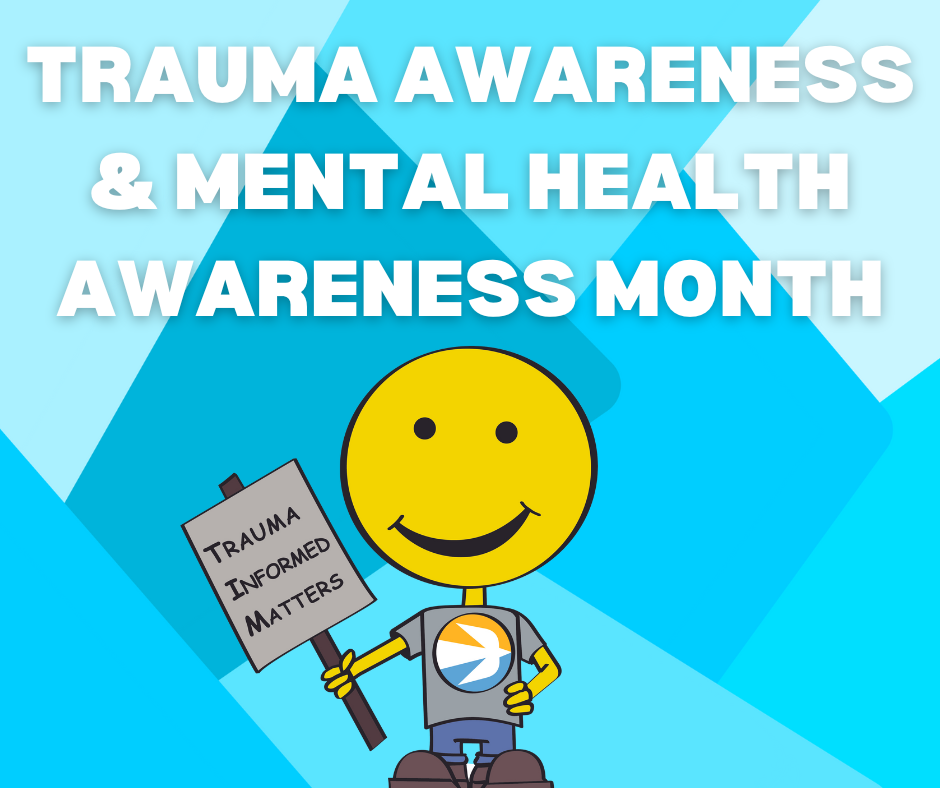Monday marks the beginning of both Trauma and Mental Health Awareness Month, so this week we explore how trauma and mental illness correlate with each other. Traumatic events are those situations that put you or someone close to you at risk of serious harm or death. These situations become traumatizing when our usual ways of coping with distress become overwhelmed, leaving us feeling frightened or unsafe. Left untreated, this acute response state can evolve into long-term mental, physical, social, emotional, and/or spiritual impairment. Chronic anxiety and depression are often associated with trauma.
It is also well documented that individuals with serious mental illness are more likely to be victimized because of the functional impairments that can be associated with acute episodes of mental illness. Incidents of victimization can exacerbate their symptoms of mental illness and result in their traumatization.
In child welfare, we encounter children that have been exposed to traumatic events and caregivers that were ill prepared to adequately respond and support the child to minimize traumatization. Sometimes the actions or inactions of those caregivers contributed to the child’s trauma. A child’s trauma symptoms typically mimic childhood mental disorders resulting in treatment strategies designed to manage symptoms of mental illness than may not relieve the impact of trauma.
Check out the following resources to learn more about trauma, mental illness, and awareness activities:
- Center for Health Care Strategies
- National Institutes of Health
- The Neurosequential Network
- The National Alliance of Mental Illness
Pamela Cornwell is Clinical Services Director for Saint Francis Ministries.





